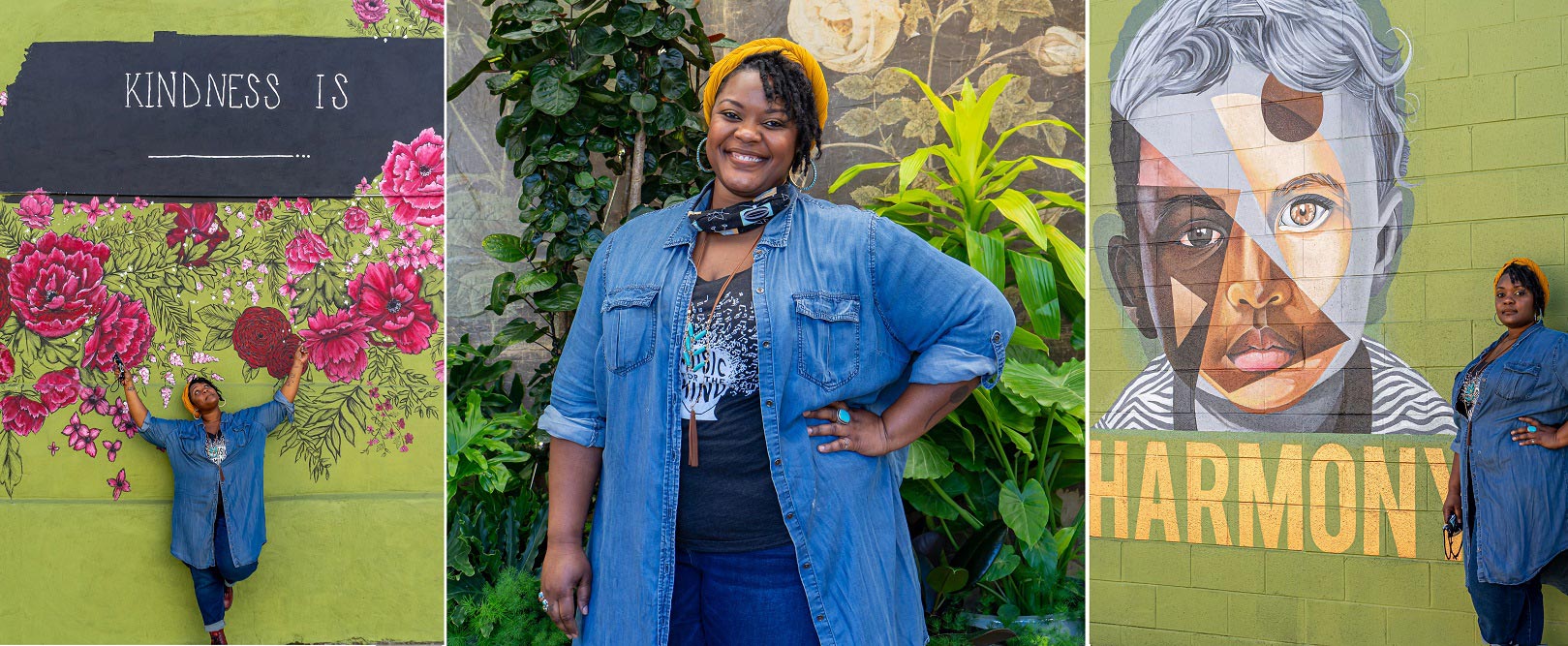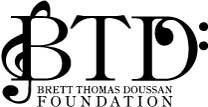
Kyshona is a Nashville-based musician, songwriter, guitarist, and clinical music therapist who began her artist journey after finding her desire to give a voice to those who have been silenced. With a decade-plus performance career under her belt, Kyshona’s most recent album, “Listen” has amassed critical and audience acclaim thanks to her music’s ability to capture the emotions of “people who inhabit (this political) moment,” (Bluegrass Situation) and common experiences of fear, hope, community, and love. Read on to learn more on Kyshona’s reflections with music, mental health, and more!
How would you describe your music in three words?
Honest, true, and connecting.
What is your earliest music memory that made you think, “I want to do that!”?
Growing up, I had an aunt – Queen - who I felt really connected to. She passed away when I was young, and after she passed, I remember my mom saying, “Hey, would you want to take piano lessons from your aunt’s old piano teacher?” A way for me to get to know some of my aunt’s childhood, really. So, I started taking piano lessons from my Auntie’s piano teacher, and found that I really liked what playing piano offered me as a mental escape. I didn't always have words for things I wanted to say, but I could always close my eyes and go there in the music. So I think I always knew I wanted to play music. I just never thought I would be someone out front performing, instead of behind the scenes!
The turning point when I decided to pursue music as an artist didn't happen until I was about 25, or 26. By then I was comfortable playing music for people because of my career in music therapy, even though the settings I was practicing music therapy in were different than your typical stage audience. I began performing original music as an artist as an outlet to put the energy and experiences I gained in my clinical work into the world. Performance was my own therapy. And I thought, I should keep bringing these stories and songs from those that are institutionalized out into the world – because as therapeutic as it was for me, it is therapeutic for audiences to know they are not alone in their experiences.
Given your background as a clinical music therapist working with a wide diversity of clients, and your established history as a professional musician and performer, how has your music changed over time?
I feel like my music has gone from more introspective to me putting myself into the voice of the person I am writing for. I’ve committed to the purpose behind the music and who I'm writing for. And I've always known that there were problems in our system in our society, but always kind of talked around it from the emotional standpoint… but now, I feel bold in expressing these views. Getting older, too, you live longer and see things from more than one perspective. Being able to write songs from outside of what’s happening behind the doors with the knowledge of what goes on behind them, and not having to play into system barriers when sharing the songs has really given more weight to my writing and performing process. I can speak with more truth, more poignant expression, and more clarity. I feel like I'm shining a light and I'm able to bring more awareness to the incarcerated, the mentally ill, the children who are forgotten, and the communities that are ignored, whitewashed over.
Legendary musical New Orleanian, Allen Toussaint, once said: “Music is everything to me short of breathing. Music also has a role to life you up-not to be escapist but to take you out of misery.” With this quote in mind, how has music helped you during hard times?
Sometimes I need a reminder of where I come from, and music gives me that. When I’m listening to music, I'm listening to things that I was brought up with – for example, what my dad would put on when it was time to clean the house on Saturdays, because that just makes me feel like that energy of family together, establishing home. And as a songwriter, music allows me to process what I’m feeling from a different vantage point. In Nashville, co-writing is a big component of the music industry and collaborative processes; I’ve found that when I’m co-writing, maybe I can’t grasp or put my emotion into a coherent lyric, but the person I’m writing with is taking the form of a therapist, in a way. They reflect back to me, through lyric form, what I’ve said in a different light. And I can work through things, find new answers, in that process.
Also, before I walk on stage, I always say a prayer: that God gets me out of the way - don't let my ego show up in the middle of this performance; if something needs to be heard, let it be heard. And if I'm supposed to receive something, I pray that I do. It's something about giving, handing over the ego and just saying, okay, now I'm a vessel. I am present and I want the music to come through. There’s something very cathartic about releasing, even when you're exhausted, still releasing all of that.
What does “Music for the Mind” mean to you?
Our minds are so trippy – look at how much body we have, and the fact that nearly everything that controls it exists in this small space. Although the mind is contained and small, its power is so vast. Music for the mind, to me, is how music feeds the body, the soul, and all aspects of health. Even when it’s our time to cross the threshold, music aids the transition. You can add music to any situation in life, and it will allow someone to connect more easily – from the beginning of life to its end, or the union, or reunion, of multiple lives. Music for the mind is allowing music to be present in our big, and small, moments.
Aside from music, what are some other tools you use to manage your mental health?
Truthfully, I used to just watch television and sleep. I've learned in the past year that that was very unhealthy for me, so what I now do is collect plants! I like the challenge of nurturing and trying to keep something alive and growing… and, healthy or not, I move my plants around all the time. Are they getting enough light? I always wonder!
I also started doing macramé, and I never realized how the action of just tying knots could be so therapeutic. Journaling is also something I’ve grown to enjoy, though I used to hate it. I do it first thing in the morning, like a big brain dump from dreams and the energy from the day and night before. It allows me to leave all these thoughts there. Meditation has found its way into the mix, too, and I work to make it a routine so I don’t slide into chaos. Making intentional time, not just brain drain time, for myself has been very important.
As we end our interview, what are some closing thoughts you’d like to share with our readers?
This concept of Music for the Mind strikes me because it relates to how I began offering therapeutic songwriting sessions with people during the pandemic. Recognizing that folks were losing the outlets to share the emotions, to reach out for help, and just say “I’m not okay,” especially when the world at large wasn’t okay, highlighted a big expressive need. I start a program, Your Song, that began as one-on-one songwriting for anyone without (or with!) music experience to talk and write. As we had our conversations, I’d take notes, and ultimately, we would end up creating their song for whatever it was they needed most emotionally, mentally. Sometimes the song was a meditation, sometimes it was an anthem of who they are in that moment - when especially people, for example, that have been dealing with bipolar disorder as a reminder of, “This is who I am, this is my truth, when I am my best self.” Some people wanted to write songs for their partners dealing with serious illnesses, or even just because.
Because of this program, it’s expanded to incorporate the group aspect, called Our Song. I’m tying this into future touring, so when we’re on the road, we can call for local organizations to engage in music-based outreach, writing with folks who are often silenced, and bringing those songs into the live shows. And, hopefully, bringing those same groups into the audience to ensure we diversify and challenge norms of the general public folks tend to see on a day-to-day basis. I’m passionate about ensuring whatever music I write remains focus on community sharing and story-telling, and highly encourage anyone to reach out to me at my website, www.kyshona.com, to get in touch for these opportunities. My goal is to make sure music remains accessible to all, in any form – even in the virtual times! Because, like this campaign emphasizes, music is a true healer.
To listen and learn more about Kyshona, head to:
Official Website: http://www.kyshona.com/
Facebook: https://www.facebook.com/kyshona
Instagram: https://www.instagram.com/kyshonamusic/
Spotify: https://open.spotify.com/artist/6W2VAlwJmXUkGwOmtFCFUA
YouTube: https://www.youtube.com/channel/UCCXoi9immUyYw5oN1g6p1SA
All photos by Nancy Fleming for the Brett Thomas Doussan (BTD) Foundation.

